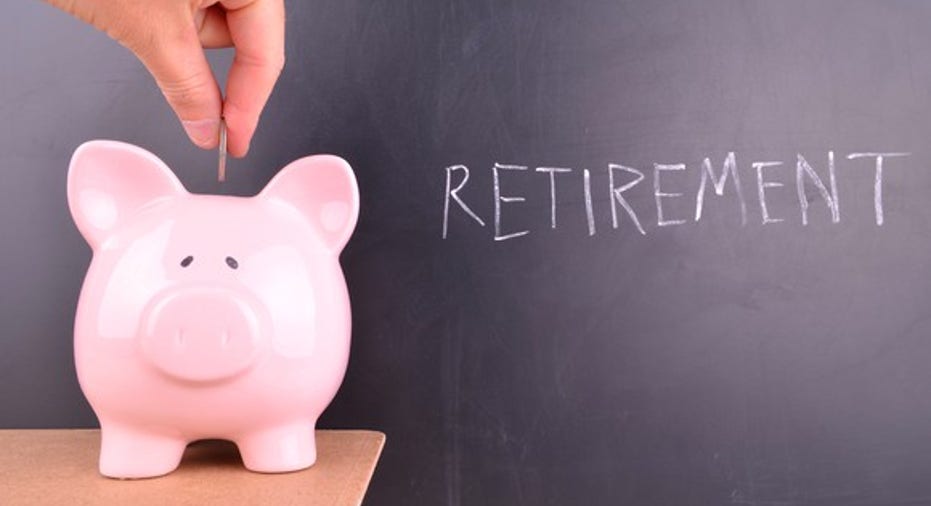Here's a Good Reason Not to Save for Retirement

I've written numerous articles, like this one and this one, about the importance of saving for retirement, and I still absolutely stand by that advice. Social Security isn't designed to sustain seniors in retirement on its own, and if you fail to save independently, you could be in for a rude awakening down the line.
But even with that in mind, I'm here to tell you that some of you should actually not be saving for retirement right now. In fact, some of you who are already contributing money to a retirement account should stop doing so immediately, even if that means missing out on an employer match.
IMAGE SOURCE: GETTY IMAGES.
Have I lost my mind? Not exactly. Saving for retirement is a crucial part of achieving financial security in your old(er) age. And while it is important to save for the future, it's even more essential that you save for the present.
Your emergency fund comes first
Most of us already understand the necessity of having an emergency fund, yet many of us aren't nearly there yet. Though we're told time and time again to accumulate enough savings to cover three to six months' worth of living expenses (sometimes more), over 60% of Americans have less than $1,000 in the bank. Even more frighteningly, a study by the Federal Reserve Board confirms that almost half of Americans are unable to deal with a $400 emergency by dipping into a bank account. Rather, they'd need to borrow the money or take on debt to come up with $400 at a moment's notice.
If you're behind on your emergency savings, or if you haven't started that emergency fund in the first place, then building that safety net should trump any other financial priority you might have -- including retirement. Will missing out on a few years of retirement plan contributions set you back a bit down the line? Possibly. After all, the earlier you start saving for retirement, the more opportunity you have to grow your nest egg by taking advantage of compounding. But if you fail to save adequately for emergencies, you could easily wind up in a far worse position.
Here's how that scenario might play out. Imagine you lose your job and don't find another for three months. Meanwhile, you still need to pay your basic living expenses, like rent, healthcare, food, and so forth. Let's also assume that even if you stick to just the essentials, you're still looking at $2,000 a month. If you don't have that money sitting in an emergency fund, you'll need to borrow a total of $6,000. And if you're forced to borrow that money at 15% interest (which isn't even as high as credit card rates get) and it takes you five years to pay it off, you'll wind up spending close to $8,600 -- that's $2,600 in interest charges, which is a lot of money to waste.
Don't count on your retirement savings
Now you may be thinking that if you prioritize retirement savings over your emergency fund to capitalize on incentives like employer-matching dollars, you can always just tap whatever plan you have in the absence of more accessible savings. But in reality, it's not that simple. While some plans include provisions allowing for hardship withdrawals, many do not. Furthermore, even if you're able to remove money from a retirement plan to address an immediate need for cash, you could get hit with a 10% early withdrawal penalty on the amount you take out. Plus, unless you have a Roth IRA, the money you withdraw will be subject to income taxes. So if, for example, your effective tax rate is 25% and you take a $10,000 withdrawal, you'll need to pay an additional $2,500 in taxes.
Your retirement account isn't designed to take the place of emergency savings, and withdrawing from it early could have serious financial consequences. If you have to choose between ramping up your 401(k) contributions and completing your emergency fund, you're better off going with the latter.
Of course, none of this should be taken as an invitation to ignore retirement or actively choose not to set money aside for it. If your emergency fund is complete, then for the love of mahjong, it's time to ramp up your retirement savings as soon as you possibly can. It's a wonderful thing to get your present finances in order, but that doesn't mean you should feel free to forget about your future.
The $15,834 Social Security bonus most retirees completely overlook If you're like most Americans, you're a few years (or more) behind on your retirement savings. But a handful of little-known "Social Security secrets" could help ensure a boost in your retirement income. For example: one easy trick could pay you as much as $15,834 more... each year! Once you learn how to maximize your Social Security benefits, we think you could retire confidently with the peace of mind we're all after.Simply click here to discover how to learn more about these strategies.
Try any of our Foolish newsletter services free for 30 days. We Fools may not all hold the same opinions, but we all believe that considering a diverse range of insights makes us better investors. The Motley Fool has a disclosure policy.



















